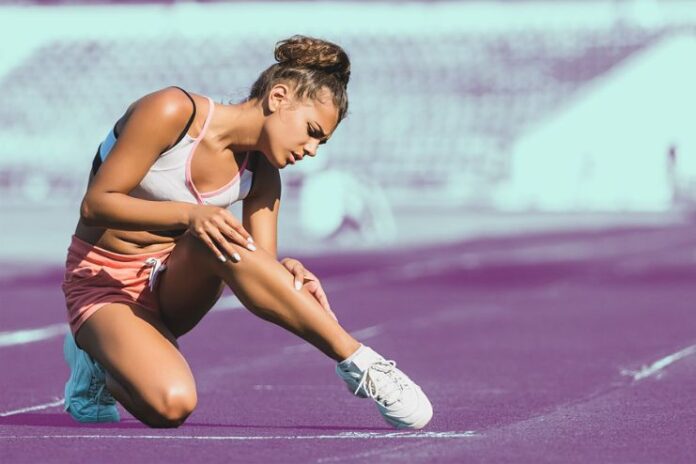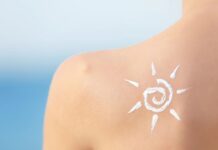AI Contribution
At HealthSpectra, we may use AI to refine grammar and structure, but every piece is shaped, checked, and approved by real people, our expert writers and editors, to ensure clarity, credibility, and care. Learn more..Affiliate Disclaimer
Some links in this article are affiliate links. We may earn a small commission if you make a purchase through these links, at no extra cost to you. We only recommend products we find useful to our readersRunner’s itch is a common yet annoying condition experienced by most people during or after exercising, especially for new runners or individuals who last ran a while ago. It occurs when increased blood flow and capillary dilation result in itchy skin while running.
A runner’s itch is typically not harmful but painful, leading to skin itching. Let us know about the causes of this itch and how to help you avoid it. We will also find practical solutions that reduce discomfort so you can run without the distractions of itching.
Causes of Runner’s Itch
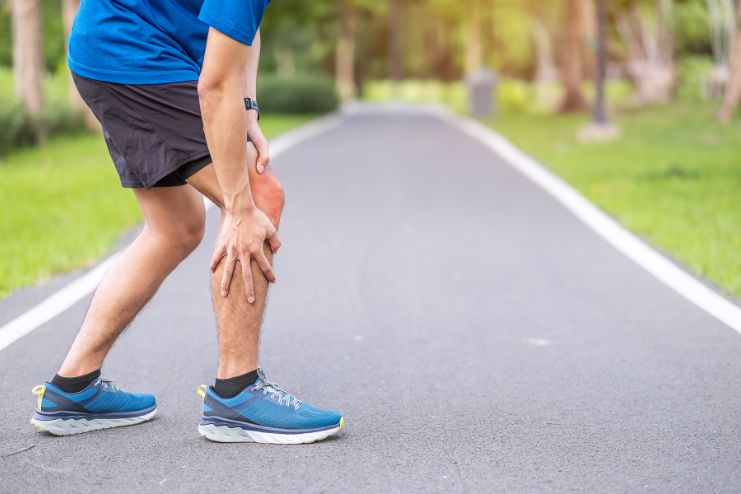
If you have ever run and experienced an itch, you might ask, “Why does running make me itch?” Several reasons cause this common problem: increased circulation, histamine release, and skin sensitivity. Here are some of the leading causes:
1. Increased Circulation
Your heart rate increases when you run, delivering more blood and oxygen to your muscles. This expands your blood vessels and stimulates nerve endings in the skin, causing itching.
Circulation and runner’s itch are interlinked, especially for those who do not exercise regularly. The increase in blood flow irritates your skin, mostly on your legs or stomach.
2. Histamine Release
Exercise also triggers the release of histamine, a chemical that plays a key role in your body’s immune response. Histamine helps expand blood vessels, contributing to the itchy sensation.
Exercise also triggers the release of histamine, which is involved in the body’s immune response. Histamine causes blood vessels to dilate, thereby creating itchiness.
This is more of a physiological response to exercise than an allergic reaction because histamine release prevents fatigue rather than as part of an allergic reaction.
3. Sensitive Skin
You are more prone to a runner’s itch if you have sensitive skin. Certain fabrics, laundry detergents, or even sweat can irritate your skin, causing itching. Wearing moisture-wicking fabrics that keep sweat away from your skin helps reduce irritation.
Skin-care products like moisturizer before your run can manage dry or irritated skin, especially in cold or dry weather.
4. Exercise-Induced Urticaria
In rare cases, exercise-induced urticaria can cause itching and hives. This allergic response occurs during or after physical exertion and can cause symptoms like redness, stomach cramps, or difficulty breathing.
Medical advice is crucial if you experience severe itching with other symptoms.
How to Prevent Runner’s Itch
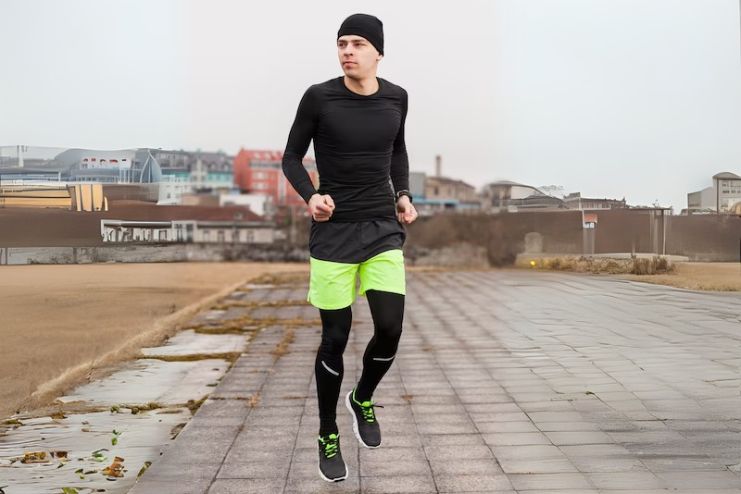
If you often feel itchy skin after running, you are not alone. Itching is a common problem usually caused by increased circulation, sweat accumulation, and friction.
Fortunately, there are effective strategies to prevent a runner’s itch and soothe your skin after exercise. Here are some helpful tips:
- Wear Proper-Fitting Clothing: Tight or ill-fitting clothing causes friction, which may lead to itchy skin. Avoid wearing running clothes that fit too tight and cause rubbing and discomfort. Wear moisture-wicking clothes made from breathable materials to prevent excessive sweating, which can worsen itching.
- Choose Moisture-Wicking Fabrics: Cotton retains moisture, which can lead to skin irritation and itchiness. Instead, choose moisture-wicking fabrics that pull sweat away from the skin, helping to keep your body dry during runs. This is essential for preventing a runner’s itch, as dry skin is less prone to irritation
- Use Anti-Chafe Products: Use them to minimize friction and irritation. Products like Body Glide® can reduce friction and irritation in skin prone to itching, such as your thighs, armpits, or groin. Applying them before and after running protects the skin from friction and stops itchy skin after running.
- Stay Hydrated: After exercise, dehydration might lead to dry, itchy skin. Always keep your skin hydrated before, during, and after a run by drinking lots of water. Hydration enhances blood circulation and makes sure your skin is well-hydrated and less itchy
- Post-Run Skin Care: After your run, it is essential to care for your skin to reduce irritation. Shower with warm water instead of hot water, making your skin drier. Pat your skin dry with a towel and apply a moisturizer or soothing lotion to replenish your skin’s moisture and help reduce itching.
By implementing these techniques into your running, you can quickly eliminate a runner’s itch and end itchy skin after running, enabling you to enjoy your workouts without discomfort.
Simple Remedies to Alleviate Runner’s Itch
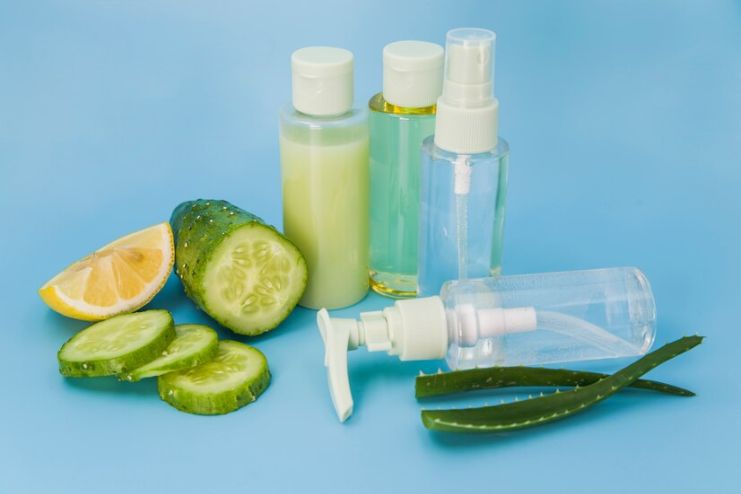
Runner’s itch is quite common and painful, but some remedies can ease the irritation. Here are some of the best remedies for itchy skin while running:
-
Antihistamines for Itch Relief
If your runner’s itch is due to an allergic reaction, antihistamines can be an effective remedy. Taking over-the-counter antihistamines before or after your run can help alleviate the itching and reduce inflammation caused by histamine release.
-
Cooling Gels and Lotions
Applying cooling gels containing menthol or aloe vera can immediately relieve the runner’s itch. These cooling products help soothe irritated skin and reduce redness, offering comfort after your run.
-
Moisturize Post-Run
Taking care of your skin after a run is important for its prevention and relief. Always take a shower with lukewarm water. After patting your skin dry, apply a moisturizer to hydrate and soothe irritated areas. Aloe or coconut oil maintains healthy skin and diminishes dryness that often triggers itchiness.
-
Wear Proper Running Gear
The best cure for preventing a runner’s itch begins with the proper clothing. Choose moisture-wicking fabrics to keep sweat away from your skin and avoid tight or rough clothing that could increase friction. Well-fitting, breathable gear can significantly reduce the risk of irritation.
Conclusion
Runner’s itch is a common, frustrating problem many runners experience during or after a workout. This usually happens because of increased circulation, histamine release, and skin sensitivity, which can cause uncomfortable itching. While harmless, it can be a great distraction that interferes with your run.
To stop a runner’s itch, one must understand what causes it and take preventive measures. The most effective ways to reduce friction and irritation that cause itching are wearing moisture-wicking, breathable fabrics, proper-fitting clothing, and anti-chafing products like Body Glide.
Hydration and moisturizing your skin after your run will also help soothe discomfort and prevent dryness, contributing to itching.
Staying hydrated and moisturizing your skin after your run also helps soothe any discomfort and prevent dryness, which can contribute to itching.
Treatments such as antihistamines or cooling gels can help immediately if you are already itching. Consistent exercise regimens and good skin care before and after your runs will make all the difference for long-term prevention.
With these tips on how to stop a runner’s itch, you can enjoy your runs free from the distraction of itchy skin, thus being able to focus on reaching your fitness goals.
In this Article

















